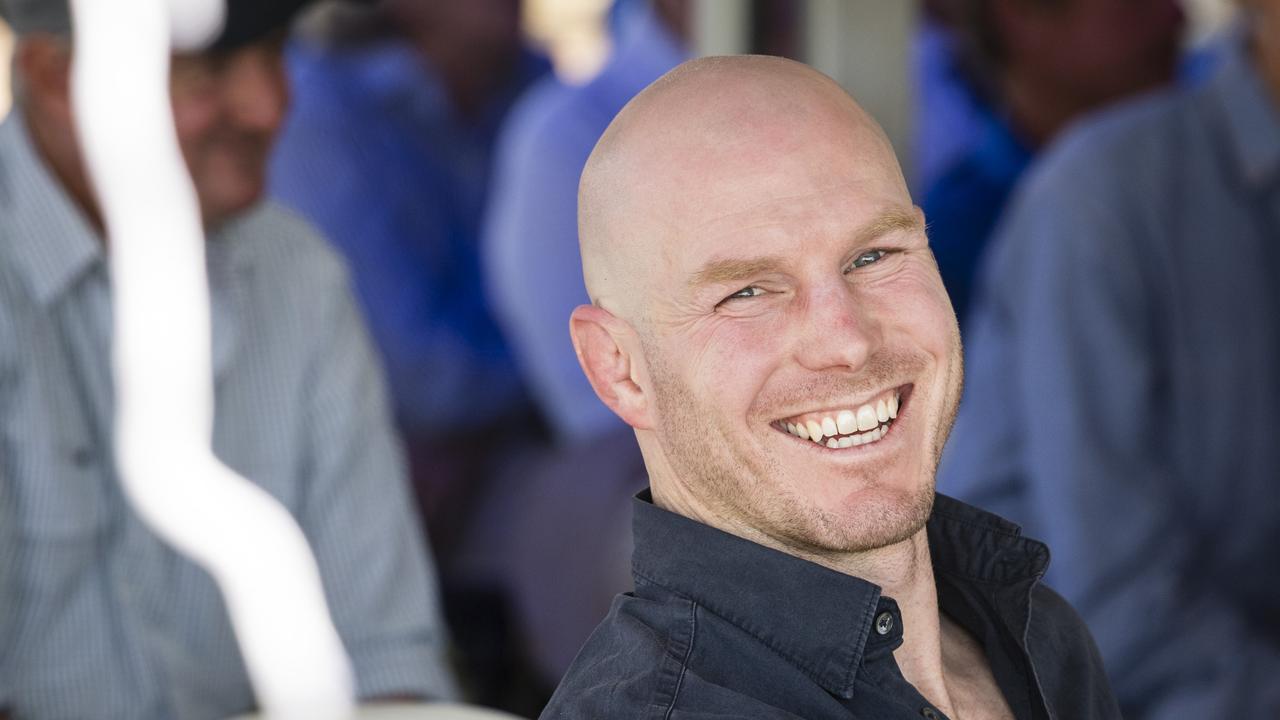Coal seam gas: Darling Downs farmers raise alarm bells over subsidence on prime agricultural land
Farmers in some of the richest agricultural land in the state have been warned of what could be in their future if CSG is allowed to continue across the Darling Downs.
Toowoomba
Don't miss out on the headlines from Toowoomba. Followed categories will be added to My News.
The livelihood of hundreds of farming families in prime agricultural land less than an hour west of Toowoomba could be in doubt if coal seam gas activity is allowed to continue.
That was the message sent by an already-affected cropping family to their compatriots in Cecil Plains area at the weekend, warning that subsidence in their paddocks they allege is caused by CSG mining will spread across the lucrative paddocks of the Darling Downs.
Zena and Garry Ronnfeldt, who have been battling gas giant Arrow Energy over illegal drilling on and near their intensive cotton and grain cropping operation outside Dalby, were key speakers at a special CSG forum organised near Cecil Plains on Saturday.
The event at Liza and David Balmain’s Glendon property near Nangwee, served as a warning to the multiple families in the western Toowoomba region of what they could face in the years to come.
Organised by independent candidate for Groom Suzie Holt, the forum was attended by politicians from across the political aisle, including independent ACT Senator David Pocock, state LNP Condamine MP Pat Weir and Toowoomba councillors Bill Cahill and Kerry Shine.
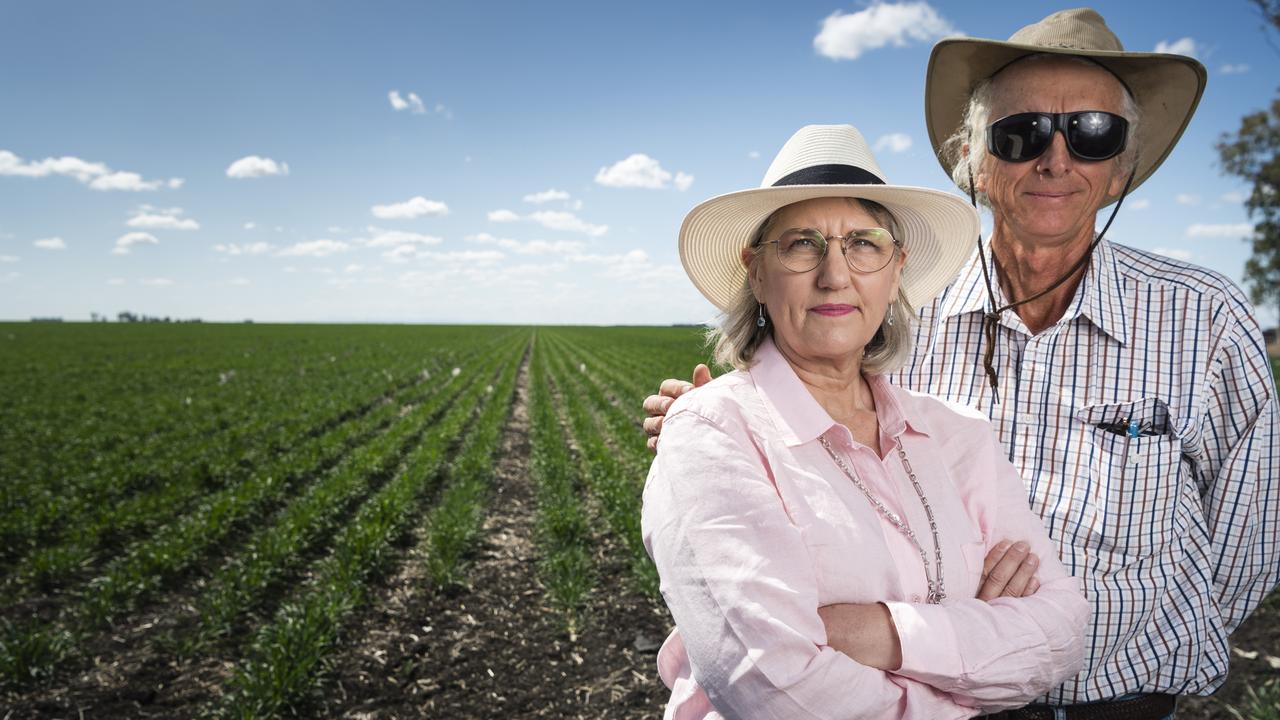
Subsidence issue costing farmers millions
Mrs Ronnfeldt laid out the issues they’d faced trying to secure compensation for sunken fields the couple say started just a few years after Arrow Energy started drilling multi-directional wells in the area as part of its massive Surat Gas project.
The project, which was launched in 2013, follows the coal seams through the Darling Downs and the company has been moving in the direction of Cecil Plains over the past decade.
“In early 2020, we realised sunken areas had formed in our most western paddock,” Mrs Ronnfeldt told audience members.
“These stopped surface areas draining properly, intervening with our ability to farm.
“To mine methane gas from underground coal seams, the salty and contaminated water is brought to the surface.
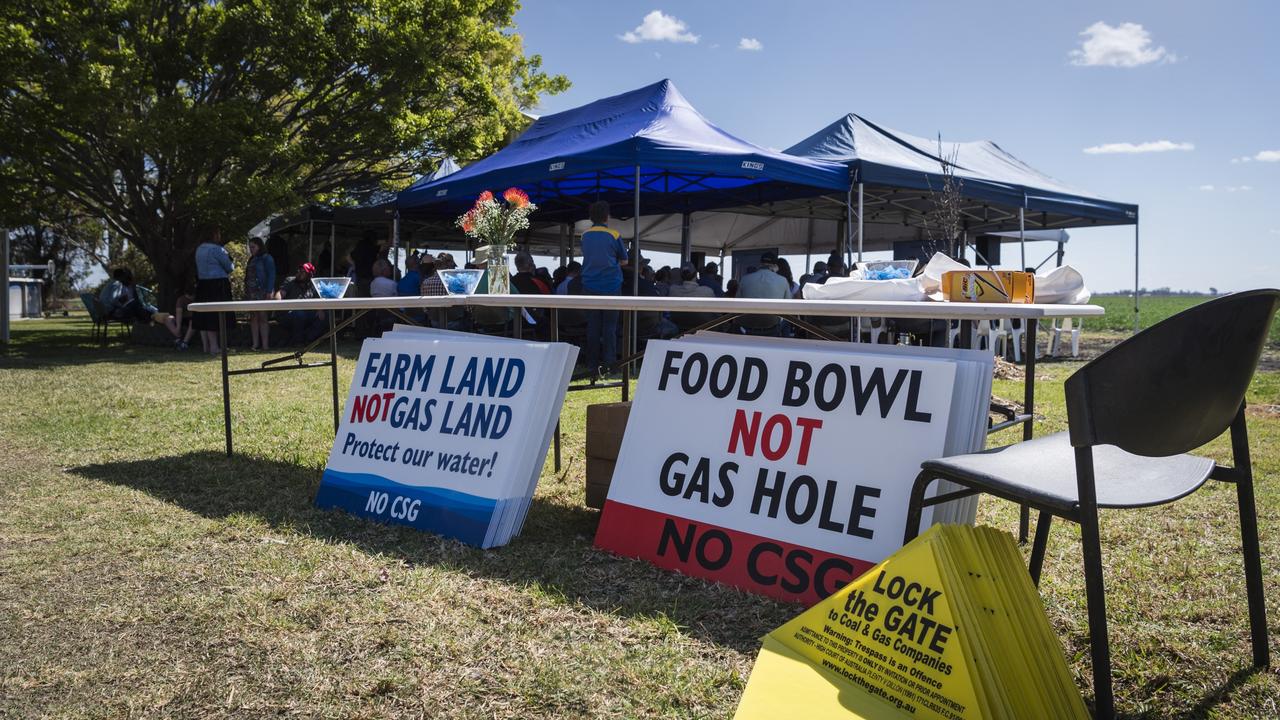
“This reduces underground pressure, allowing the gas to flow out of the coal which then shrinks.
“They partly hold the ground up, so their removal leads to depressions on the surface.”
Mrs Ronnfeldt said the path to compensation for the millions in lost cropping yields and repairs was difficult due to what she said was a lack of effort from the government and gas industry to further investigate the already-existing connection between CSG activity and subsidence.
“The gas industry was left in charge of collecting, controlling and using data, with no incentive to gather data which could prove its liability,” she said.
“No proper science on subsidence means no pathway to stop gas mining or halt future gas development, where high-value and irrigated cropping areas will be permanently destroyed, or where overland floodwater speed and direction will change.”
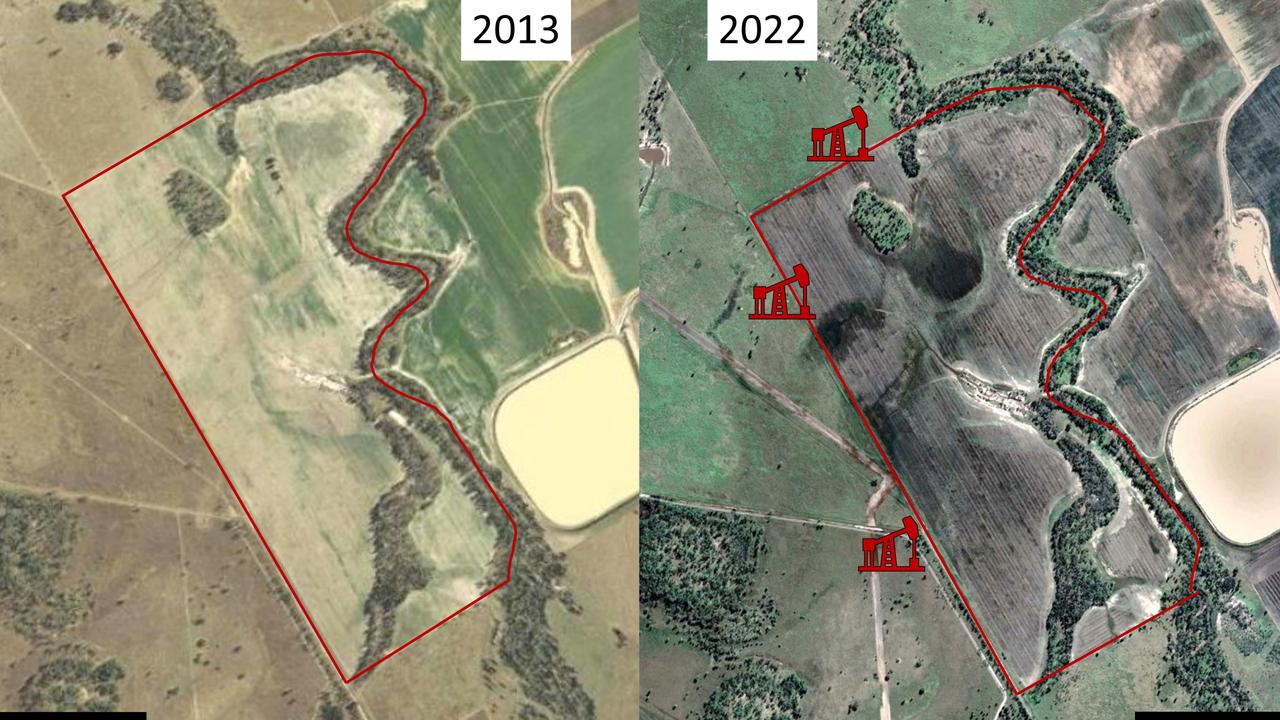
Mrs Ronnfeldt said the battle with Arrow Energy had come with “horrific life costs”, urging Cecil Plains farmers to heed the warning.
“The past three years have been difficult, emotionally-draining and an expensive journey,” she said.
“For you, it is decision time – it’s not just about you and your situation now, it’s about the longevity of the critically-important cropping industry here.
“We’re giving you the gift of knowledge and forewarning, so you can understand what your reality is going to be.”
CSG in Cecil Plains a ‘huge risk’
Liza Balmain said her husband David’s family had been at Glendon, near Cecil Plains, for five generations — but she fears that time is running out.
Hosting the CSG forum at their 2500-acre property on Saturday, Mrs Balmain said the family’s mix of irrigated and dryland crops would be badly affected if subsidence occurred in their paddocks.
“They’ve always led us to believe subsidence was not an issue, but there was no comprehensive research,” she said.
“Alarm bells started to ring about how this was going to play out — you could just see the problems growing exponentially.
“Where we are as well, we’ve got a major fault line running through here, from Dalby to just southeast of Cecil Plains.
“We’re predicted to have much larger subsidence (than the Ronnfeldts) — I’ve seen some reports of 300mm of subsidence, because we’re in between fault lines.”
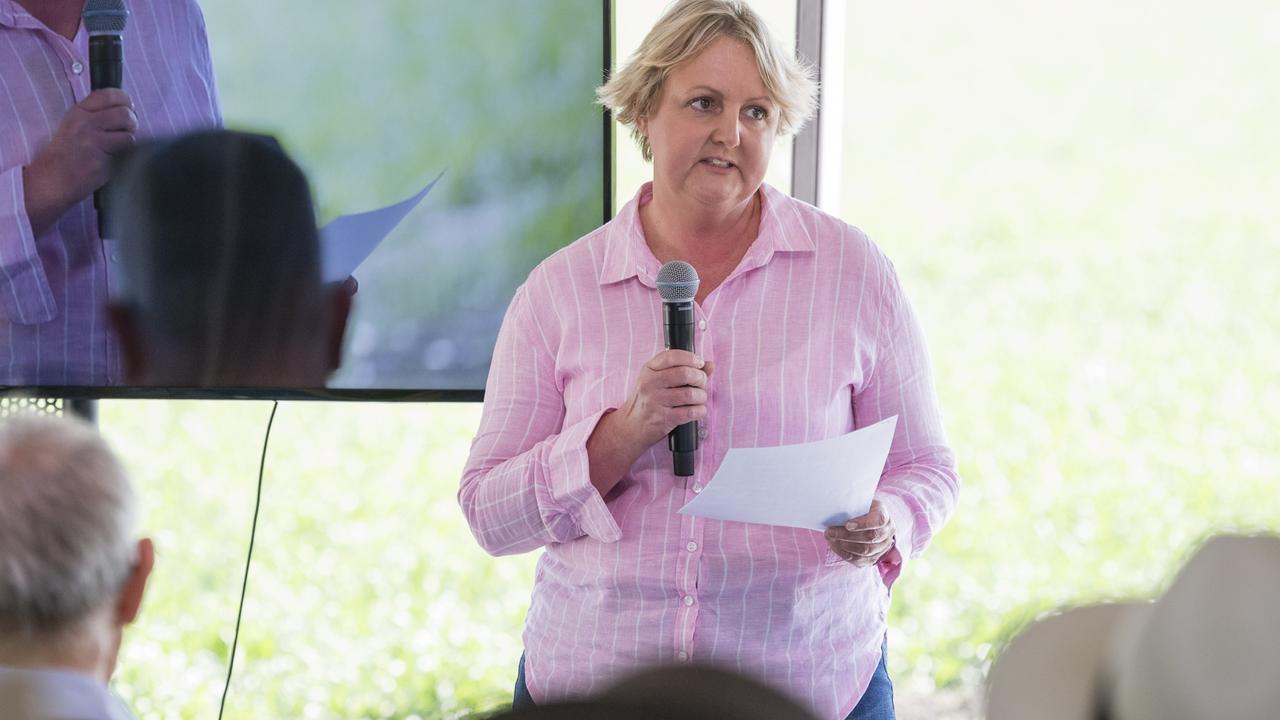
Mrs Balmain said prime agricultural land around Cecil Plains needed to be protected.
“There are huge risks at play and they need to get themselves informed as to the risks, and not just the short-term but long-term risks,” she said.
The forum at Glendon also brought together a number of leading academics, legal professionals and other experts to discuss the issue.
Among them was the University of Queensland’s Associate Professor Peter Dart, who said evidence showed subsidence could occur for decades after CSG activity ceased.
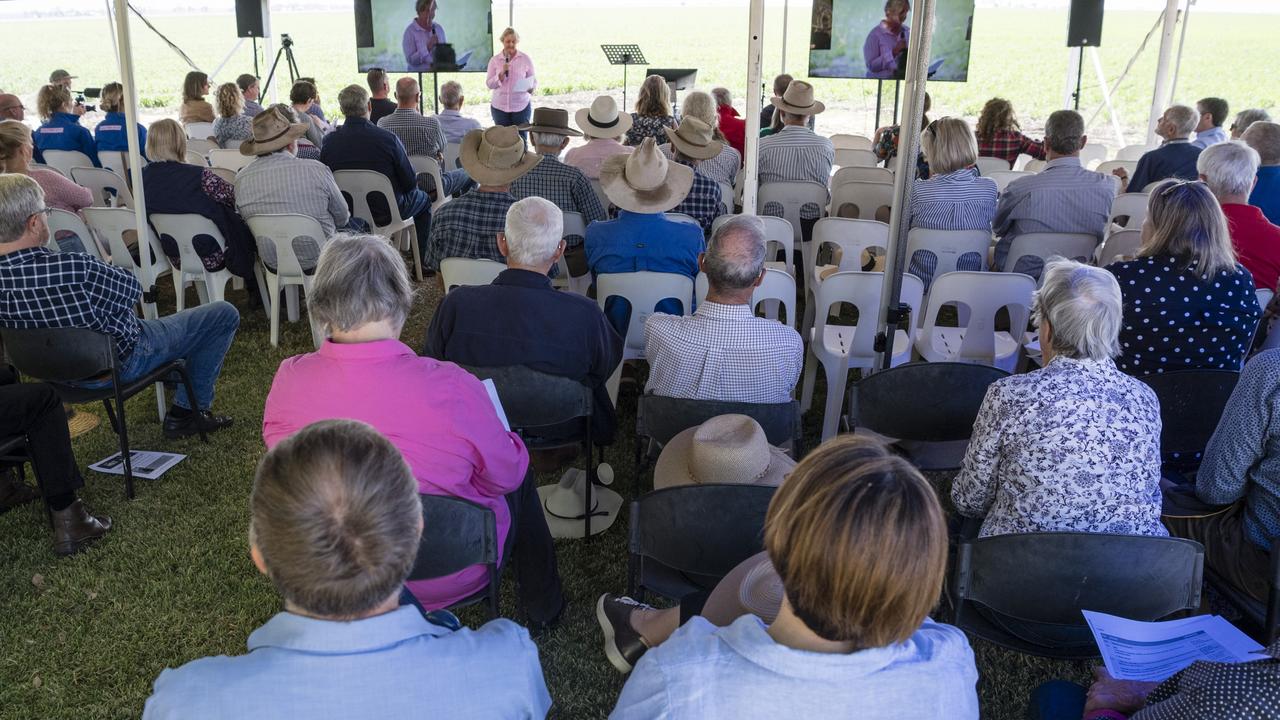
Calls to change federal legislation to protect farming
Event organiser Suzie Holt said Saturday’s forum ended with a unanimous call from the dozens of farmers present to change and strengthen legislation and regulations to specifically protect prime farming land.
She pointed to adding a trigger to the federal Environment Protection and Biodiversity Conservation Act for prime land, which encompassed just three per cent of Queensland’s entire surface area but produced billions for the economy.
“We want to introduce a trigger to apply for prime ag land, and the strengthening of the water trigger that’s already in place,” she said.
Ms Holt said she would be taking the community’s concerns back down to Canberra in the future.
Senator Pocock noted the community’s concerns, commenting on social media “there is no justification for expanding the coal seam gas industry in Australia”.
Arrow Energy was contacted for comment.
More Coverage
